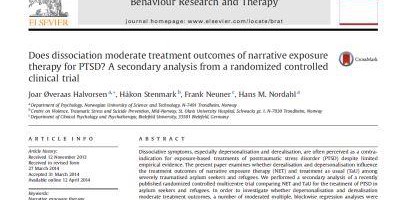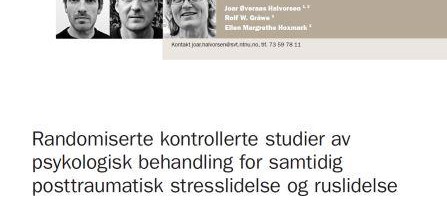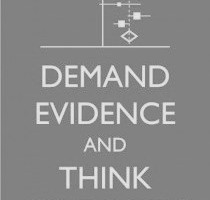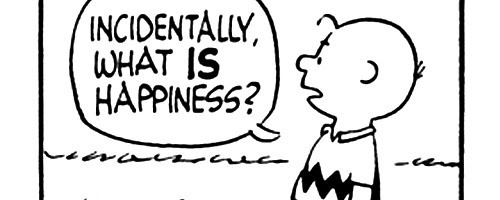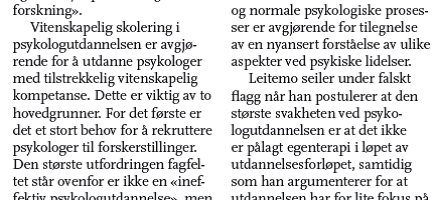I lag med Håkon Stenmark, Frank Neuner og Hans M. Nordahl har jeg skrevet en artikkel hvor vi undersøker om dissosiative symptomer, som derealisasjon og depersonalisering, påvirker behandllingsutfall av narrativ eksponeringsterapi for PTSD hos alvorlig traumatiserte flyktninger og asylsøkere. Abstract kan leses under, mens fulltekst kan leses i Behaviour Research and Therapy.
Abstract
Dissociative symptoms, especially depersonalisation and derealisation, are often perceived as a contraindication for exposure-based treatments of posttraumatic stress disorder (PTSD) despite limited empirical evidence. The present paper examines whether derealisation and depersonalisation influence the treatment outcomes of narrative exposure therapy (NET) and treatment as usual (TaU) among severely traumatised asylum seekers and refugees. We performed a secondary analysis of a recently published randomized controlled multicentre trial comparing NET and TaU for the treatment of PTSD in asylum seekers and refugees. In order to investigate whether depersonalisation and derealisation moderate treatment outcomes, a number of moderated multiple, blockwise regression analyses were conducted. Missing data were handled with multiple imputation. The main finding from intention-to-treat analyses is that derealisation and depersonalisation overall do not moderate the treatment outcomes of either NET or TaU. The treatment condition was the most stable predictor of residual gain scores across outcome measures, with NET being associated with lower residual gain scores indicating better treatment outcomes. The present study substantiates and extends previous research indicating that dissociative symptoms such as derealisation and depersonalisation do not moderate the treatment outcome of exposure-based treatments for PTSD.
Highlights
-
Dissociation is often perceived as a contraindication for exposure-based treatments for PTSD.
-
We examined whether depersonalisation or derealisation moderated treatment outcomes of NET and TaU.
-
Derealisation and depersonalisation did not moderate treatment outcomes of NET or TaU.
